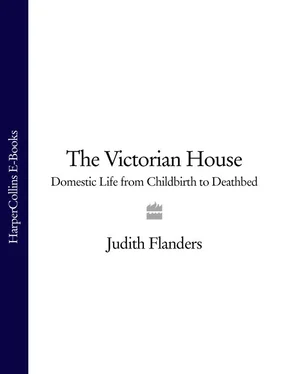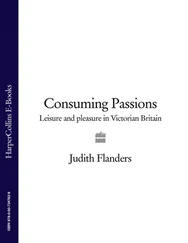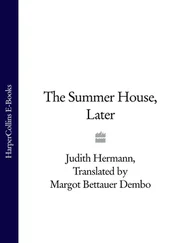Yet women could not be sheltered for ever, although they remained hampered long into adult life by their home-made educations. Gwen Raverat’s mother plagued her family with her dim grip on basic numeracy:
My mother … insisted on keeping accounts down to every halfpenny; but no one, least of all herself, ever understood them … [A]fter my father’s death The Accounts became a constant menace to everyone in the family … It was so hopeless and so useless. It was impossible to add up one page without being dragged into the complications of all the other pages of all the other account books, which were used indiscriminately for everything. The only system was that every item had to be written down somewhere – on any scrap of paper, or any page of any account book; and then, from time to time, everything must be rounded up and added together in one enormous sum. Fortunately no odious deductions were drawn from the resulting total, as quite often the Credits had got mixed up with the Debits, and they had all been added up together. 72
Fortunately for Mrs Darwin, she had married into a wealthy family, and the accounts were more form than content. For the much larger number of women who needed to work, a similar lack of basic education meant blighted lives. A pamphlet called A Choice of a Business for Girls , published in 1864, warned:
The power of making out a bill with great rapidity and perfect accuracy is also necessary, and this is the point where women usually fail. A poor half-educated girl keeps a customer waiting while she is trying to add up the bill, or perhaps does it wrong, and in either case excites reasonable displeasure. This displeasure is expressed to the master of the establishment, who dismisses the offender and engages a well-educated man in her place. He pays him double wages … 73
John Ruskin spoke for many of the middle class when he set out his thoughts on the relative educational needs of men and women in his 1865 essay ‘Of Queens’ Gardens’:
[Woman’s] intellect is not for invention or creation, but for sweet ordering, arrangement, and decision … Her great function is Praise … All such knowledge should be given her as may enable her to understand, and even to aid, the work of men: and yet it should be given, not as knowledge, – not as if it were, or could be, for her an object to know; but only to feel, and to judge … Speaking broadly, a man ought to know any language or science he learns, thoroughly – while a woman ought to know the same language, or science, only so far as may enable her to sympathise in her husband’s pleasures, and in those of his best friends. 74
His ideas were welcomed, and other reasons for the non-education of women were added. George Gissing, in many of his novels an ardent supporter of education for women, in others drew characters whose education encouraged them to move beyond their natural sphere, so that they committed the cardinal sin of not knowing their place, disrupting the ordered segregation of the world. In New Grub Street Dora and Maud, daughters of a vet, have the grave misfortune to attend a Girls’ High School, which gives them ‘an intellectual training wholly incompatible with the material conditions of their life’. 75 Their intellectual station now no longer matches their income, and they therefore remain near-friendless, because their intellectual equals are their economic and social superiors, and they cannot meet on an equal footing.
It was not only the cost of an education that prevented girls from being sent to school. Constance Maynard came from a wealthy family, and her father was happy to spend money on his daughters in other ways, but when she was sixteen he ‘said he didn’t see why he should go on paying for an expensive school when I should do quite well at home with the three sisters above me who had been educated till they were eighteen’ and who could therefore pass along any extra education she needed. When she said she wanted to go to Girton, Cambridge’s newly created women’s college, he ‘offered to get me a new pony if I would give it up.’ 76 (She did not, and later became the founder of Westfield College.) * Schools were, many thought, breeders of disease, places of dubious, if not downright poor, morals, and, as Gwen Raverat noted, just ‘Bad’.
Even for girls who knew their place, social life imposed requirements which they could not fulfil while undergoing full-time education. Molly Hughes, aware that she was going to have to support herself, rushed with her friend to tell her parents that they had matriculated. She found the friend’s sister had brought her new baby for a visit, and ‘When we burst out with “We’ve passed the matriculation … we’re members of the University,” we received the response, “Yes, dears? … and did it love its granny den!”’ Molly’s brother grudgingly admitted that, as Molly’s fiance was not earning enough for them to marry on, she might as well work for a degree, adding, ‘Don’t work too hard.’ 77
That was the key. Girls and young women must not give their undivided attention to anything. Florence Nightingale, who certainly broke out of her family’s expectations, wrote an impassioned essay on the subject in 1852, when she was thirty-two. She thought it important enough to revise it seven years later, on her return from the Crimea. On the advice of her friend John Stuart Mill she did not attempt to publish it. A great advocate of women’s equality, he was none the less probably right: the anguish she felt was so nakedly apparent that she might have subsequently found it difficult to get men in power to take her health-care concerns seriously. She wrote:
How should we learn a language if we were to give it an hour a week? A fortnight’s steady application would make more way in it than a year of such patch-work. A ‘lady’ can hardly go to ‘her school’ two days running. She cannot leave the breakfast-table – or she must be fulfilling some little frivolous ‘duty’, which others ought not to exact, or which might just as well be done some other time …
If a man were to follow up his profession or occupation at odd times, how would he do it? Would he become skilful in that profession? It is acknowledged by women themselves that they are inferior in every occupation to men. Is it wonderful? They do everything at ‘odd times’ …
We can never pursue any object for a single two hours, for we can never command any regular leisure or solitude … 78
All study had to give way to other members of the family – Maud Berkeley and her friends found that even practising the piano, that ladylike occupation par excellence, was difficult to achieve: ‘[My father] came in while I was hard at work on my arpeggios, to say he had just started a course of reading Plato and found he was vastly distracted by my music. Very difficult, attempting to be studious when each attempt brings only reproach … Heard from Lillian later that Mr Barnes made a similar protest.’ 79
Sarah Stickney Ellis, in The Daughters of England , was very firm. There was no point in educating women, because men had done everything before, and done it better. ‘What possible use’, she asked rhetorically, ‘can be the learning of dead languages?’ There were already translations available of all the major works, from which girls would ‘become more intimately acquainted with the spirit of the writer, and the customs of the time’ than they ever could by attempting to read works in the originals. Likewise, a girl need not study science more than superficially. A mere acquaintanceship would render her ‘more companionable to men’, because luckily ‘it should not be necessary for her to talk much , even on his favourite topics, in order to obtain his favour’. Knowledge was important only for a girl to be able ‘to listen attentively’, otherwise she would ‘destroy the satisfaction which most men feel in conversing with really intelligent women’. 80
Читать дальше












